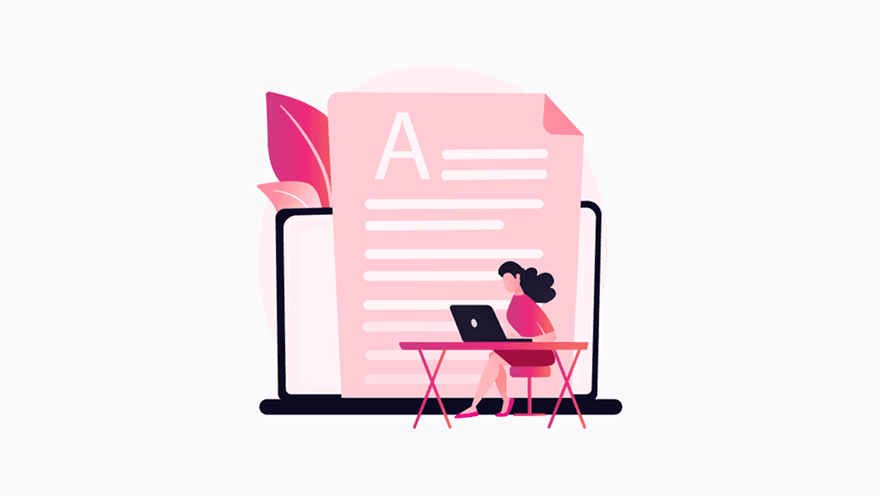With the Pandemic, we saw the whole world shifting online and going digital. From buying groceries to having classes for kids -- everything was done online.
With the vaccine, the Pandemic will go away. But the world shifting online is here to stay.
In the past few years, online education and online courses have become very prominent. These courses are beneficial for both students and teachers alike.
Even before one opts for courses, there are online tests to understand one's liking and knowledge of a particular subject or interest area. These tests are beneficial for both students and teachers.
Online tests and their benefits – For teachers as well as their students
There are free psychometric tests that help students with shortlisting career options as per their choice. It is a good idea for teachers and educators to recommend students to opt for such career planning tests to give them more focused guidance on their careers. These tests can be given online or there are options to give it in person.
There are also test series for entrance test for teachers. These are mock tests for those who are interested in applying for government teaching jobs. There is an entrance test to be given to be eligible for teaching jobs. It is called as TET -- Teacher Eligibility Test. One can give free online mock tests for TET to be better prepared for the actual exam.
Online Courses and Job Opportunities for Tuition Teachers
There are also certificate courses for tuition teachers such as WONK. WONK is India's largest expert tutor booking app with 75,000+ tutors. It trains and certifies tuition teachers so that parents are assured about getting quality teaching services for their children. On average WONK Tutors earn INR 40,000 per month.
The best part about WONK is that it helps provide part-time job opportunities and work from home options to those teachers who are looking at career options with flexible timings.
Online learning and online courses are beneficial for teachers and educators. If you are a teacher or an educator, here are a few reasons why you can consider online learning and online courses:
NEP 2020 and Online Education
The focus of the NEP seems to be on vocational courses and life skills.
While there are many institutions that offer coaching these courses in person, online courses make it easy for teachers to upgrade their skills.
UGC (University Grants Commission) has issued a notice that institutions can offer up to 40% of courses in a particular programme in a semester through online learning platforms such as Swayam.
This will open new opportunities for teachers in the online teaching field.
Free Online courses is a great option for Teachers. Certification is a bonus
Why opt for free courses if there are paid available : If one is learning something new, a free online course is better than a paid course. A free course allows one to explore multiple subjects that the teacher may want to learn. It is a risk-free trial of different courses simultaneously.
From Science and Coding, to beauty and wellness, to Engineering, Manufacturing, Law and Finance, we have an extensive list of free online courses with certification for women on this website. Do have a look to check out the courses which may be of interest to you. The idea is to make education and progress available to all!
It allows one to explore multiple courses at the same time. The courses which one likes, can be completed. The rest of the courses can be left mid-way. Since these are not paid courses, there is no guilt or pressure to complete the course
Why are free certificate courses important : Certification lends authenticity and credibility to what is learnt. It adds weight to the CV. It shows the person has taken the effort to study, attend classes, appear for an exam to get a certificate. Certificates not only show the authenticity of the subject learnt but also reflect positively on the character of the person obtaining the certificate. There is thus merit in going for free online courses that offer a certificate.
How can learning online courses benefit teachers and educators?
-
Easy revision of subjects
Online courses help teachers stay updated with what is happening around them. It also helps them brush up on what they already know -- like a revision of their expertise and knowledge.
For example, an English teacher may want to upgrade his or her knowledge in English, list down the common mistakes that students usually make and share that list with students.
In such a case, the teacher can always use a short, free, online course on common mistakes in English. This will help revising the common mistakes that someone can make in English. The teacher can then share these learnings with their students too.
Similarly, a management professor wants to revise his or her knowledge before teaching the students basics of management or how to build and implement a new business model. In this case, the teacher can opt for a free online course to build a new business model implementation.
-
Learning new subjects and upgrading existing knowledge
The world around us is changing at a rapid speed. This makes us all feel that we need to learn new things to keep up with the world.
Online courses are an easy way to keep learning new things. For example, a Hindi teacher may want to learn how to speak English more efficiently. There are free online courses to learn English from Hindi
Or there could be an IT teacher who wants to learn Python programming. Free online courses on Python data structures, computation thinking with Python or just a basic course on Python programming may be a great way to start learning the subject.
Teachers and educators keep interacting with the younger generation everyday. They too need to be updated, know different subjects and develop new skills to keep up with the students around them.
Interdisciplinary learning:
Gone are the days when a teacher teaching commerce could only learn finance and an arts teacher could not learn science.
Today, it is all about learning different subjects and using those learnings effectively. For example, Steve Jobs used his knowledge of designing and calligraphy along with computer engineering to give the world Apple computers.
Similarly, a person who knows computer science may wish to learn English better to come up with a program like Google Translate -- which allows one to translate one language into another using the program.
Free Online courses are a great way to keep learning about different subjects.
Flexibility of time and location
Teachers and educators are usually busy. It is difficult for them to enroll in a college or attend lectures and classes to learn new things.
Online courses offer flexibility. One can learn where ever one wants to and at whatever time one wants to.
More Opportunities
Learning new subjects or gaining more knowledge in an existing subject opens doors for many opportunities.
Sometimes it could be a simple course on Personality development and grooming or a course on how to crack interviews that may help the teachers boost their job opportunities.
NEP 2020 has also proposed tie ups with foreign colleges. It is, therefore, a good idea to keep yourself updated so as to be prepared when a new job or career opportunities crop up.
Wider Student base
Learning new subjects also help widen the student base of the teachers. As one learns more, there is more that the teacher can teach the students -- automatically helping increase the number of students.
Take WONK for example. As a WONK certified teacher, you get access to many more job opportunities as per your needs.
Online education has also opened doors to more locations. One is not bound by physical boundaries anymore. You may be sitting in Assam and teaching in the United States of America. Or living in South India can conducting classes for Delhi students.
Online courses help one prepare better for these kinds of changing scenarios.
Virtual classrooms and workshops are a good idea for educators to consider too
Online courses is not just about teachers opting to learn different subjects. It is also about teachers helping students learn from any location.
Virtual classrooms is a good idea to have interaction with students. It works better than a correspondence course where the students have to read textbooks and understand concepts on their own.
The teachers could also combine correspondence courses with one-day workshops to help answer student queries.

